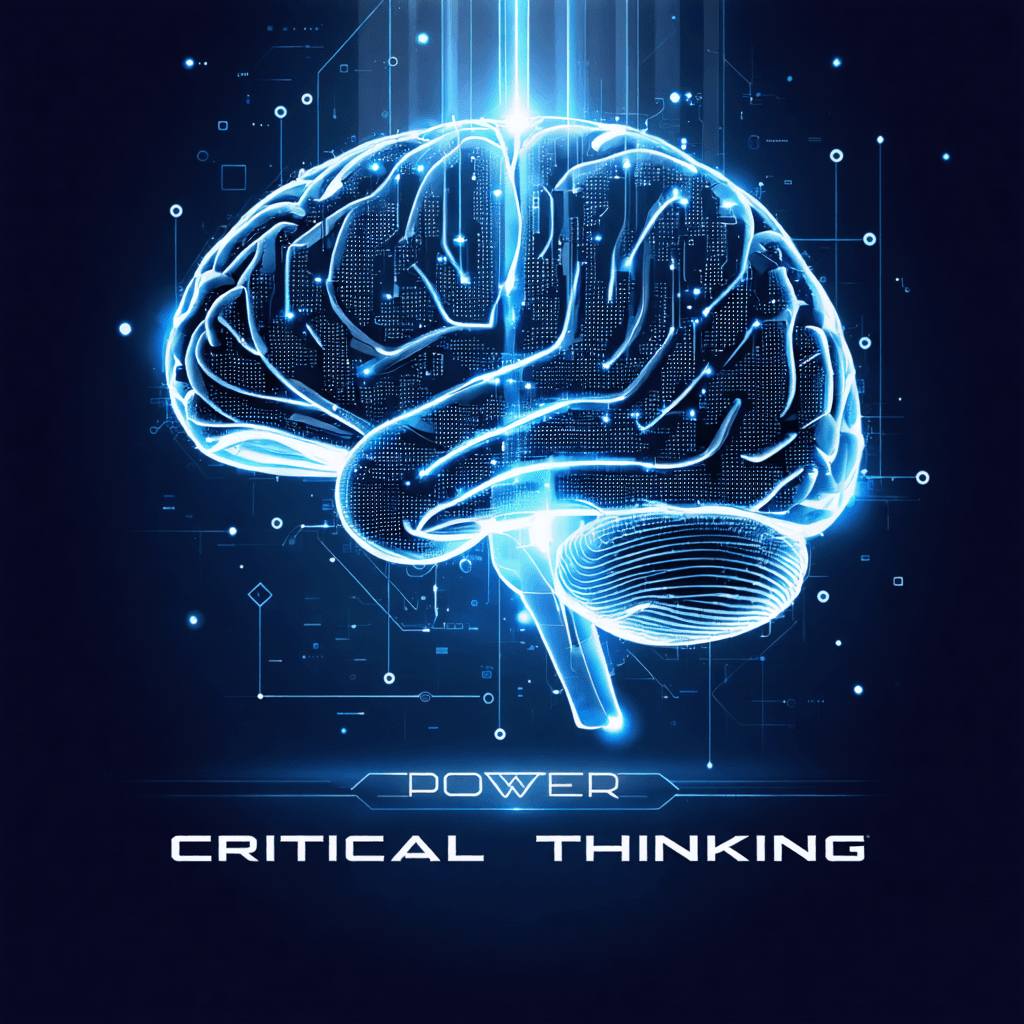Unleash the Power of Critical Thinking: The Secret to Making Informed Decisions and Staying Ahead in a Fast-Paced World
Critical thinking is not a magical ability reserved for a select few; it's a skill that can be developed, honed, and mastered with practice, patience, and persistence. In today's fast-paced, ever-evolving world, critical thinking is not just a desirable trait but a necessary tool for making informed decisions, staying ahead of the curve, and achieving success.
The Anatomy of Critical Thinking
Before we dive into the secrets of unleashing the power of critical thinking, it's essential to understand what it entails. Critical thinking is the systematic evaluation and analysis of information and ideas to form a judgment or decision. It's the ability to objectively analyze facts, identify patterns, and make informed conclusions based on evidence. Critical thinking involves:
- Analytical skills: Breaking down complex information into smaller, manageable parts to understand relationships and identify patterns.
- Objectivity: Setting aside personal biases, emotions, and assumptions to evaluate information based on merit.
- Logical reasoning: Drawing conclusions based on sound reasoning and evidence.
- Creative thinking: Generating innovative solutions by thinking outside the box.
The Importance of Critical Thinking in Modern Times
In today's information age, we're constantly bombarded with data, opinions, and misinformation. Without critical thinking, it's easy to get caught in the crossfire of biases, fake news, and propaganda. Critical thinking allows individuals to:
- Make informed decisions: By evaluating information objectively, individuals can make informed decisions that impact their personal and professional lives.
- Stay ahead of the curve: Critical thinking enables individuals to anticipate and adapt to changes in their industry, job, or personal life.
- Develop problem-solving skills: Critical thinking fosters the ability to identify problems, analyze data, and develop innovative solutions.
- Become lifelong learners: Critical thinking promotes a culture of continuous learning, enabling individuals to stay curious, open-minded, and receptive to new ideas.
The Barriers to Critical Thinking
So, why don't we naturally adopt critical thinking as a way of life? Several barriers stand in the way:
- Confirmation bias: The tendency to seek out information that confirms our existing beliefs and ignore contradictory evidence.
- Cognitive biases: Mental shortcuts that lead to irrational conclusions, such as the availability heuristic (judging likelihood based on vivid memories) or anchoring bias (relying too heavily on the first piece of information).
- Emotional thinking: Allowing emotions to cloud our judgment, leading to impulsive decisions and knee-jerk reactions.
- Lack of information literacy: The inability to effectively locate, evaluate, and use information.
Strategies for Unleashing Critical Thinking
Fortunately, critical thinking is a skill that can be developed with practice, persistence, and the right strategies:
- Practice active listening: Pay attention to the speaker, ask clarifying questions, and seek additional information to ensure understanding.
- Evaluate evidence: Look for credible sources, consider multiple perspectives, and analyze data to form conclusions.
- Challenge assumptions: Identify and question assumptions, biases, and emotional thinking patterns.
- Embrace diverse perspectives: Seek out diverse viewpoints, engage in constructive debates, and be open to changing your mind.
- Reflect and analyze: Regularly reflect on experiences, analyze successes and failures, and identify areas for improvement.
The Role of Education in Fostering Critical Thinking
Education plays a vital role in developing critical thinking skills. A well-structured educational system should:
- Encourage inquiry-based learning: Fostering curiosity, exploration, and discovery.
- Emphasize critical thinking exercises: Providing opportunities for students to practice critical thinking through real-world scenarios, case studies, and problem-solving activities.
- Promote information literacy: Teaching students to effectively locate, evaluate, and use information.
- Foster a culture of constructive debate: Encouraging respectful, open-minded discussions and debates.
The Future of Critical Thinking
As we navigate the complexities of the 21st century, critical thinking will become increasingly important. The exponential growth of data, the rise of artificial intelligence, and the evolving nature of work will demand individuals who can think critically, creatively, and strategically.
Unlocking the Power of Critical Thinking with 01TEK
At 01TEK, we believe that critical thinking is the key to unlocking individual and collective potential. Our innovative eLearning platform provides dynamic, personalized learning environments, featuring virtual classrooms, extensive digital libraries, AI-driven personalized learning paths, and secure blockchain-verified certification.
Ready to unleash the power of critical thinking and take your skills to the next level? Explore our courses and resources on critical thinking, problem-solving, and decision-making. Join the 01TEK community today and become a part of the movement to democratize access to quality education and empower individuals worldwide.
Discover more courses and resources on 01TEK
[Insert CTA button: Explore 01TEK Courses]
By embracing critical thinking, we can create a world where individuals make informed decisions, stay ahead of the curve, and achieve their full potential. The power is within us; let's unleash it.
Wonder what your customer really wants? Ask. Don’t tell.
Lisa Stone, co-founder of BlogHer



